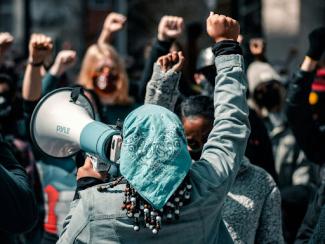
In 1982, the Supreme Court ruled in NAACP v. Claiborne Hardware that some protesters committing violence or other crimes isn’t the fault of the entire protest or its leaders. But in 2024, the Supreme Court decided not to hear McKesson vs. Doe, concerning whether or not a Black Lives Matter activist can be held responsible for another protester throwing an object at a cop in 2016.
The lower Fifth Circuit Court of Appeals blamed DeRay McKesson for organizing a protest and not controlling every protester’s behavior. Until the Supreme Court says otherwise, that decision stands. For now, anyone who organizes a protest within the Fifth Circuit—that means Louisiana, Mississippi, and Texas—faces extreme liability.
The suppression of Black resistance isn’t new. Recent resistance is comparable to 1967’s long, hot summer. That came after the “winning” of civil rights in 1964, and before a massive criminalization of protest. History repeats while liberation has yet to be won.
Having one body of powerful people, like the Supreme Court, deciding whether we have basic rights is inherently anti-democratic. And though this recent move sends a blatant anti-protest message, it won’t stop resistance.
It will criminalize protesters even more, feeding them into a criminal legal system that people will continue to fight. And when rights can be given and taken away, this historical cycle of rebelling against oppression is inevitable.